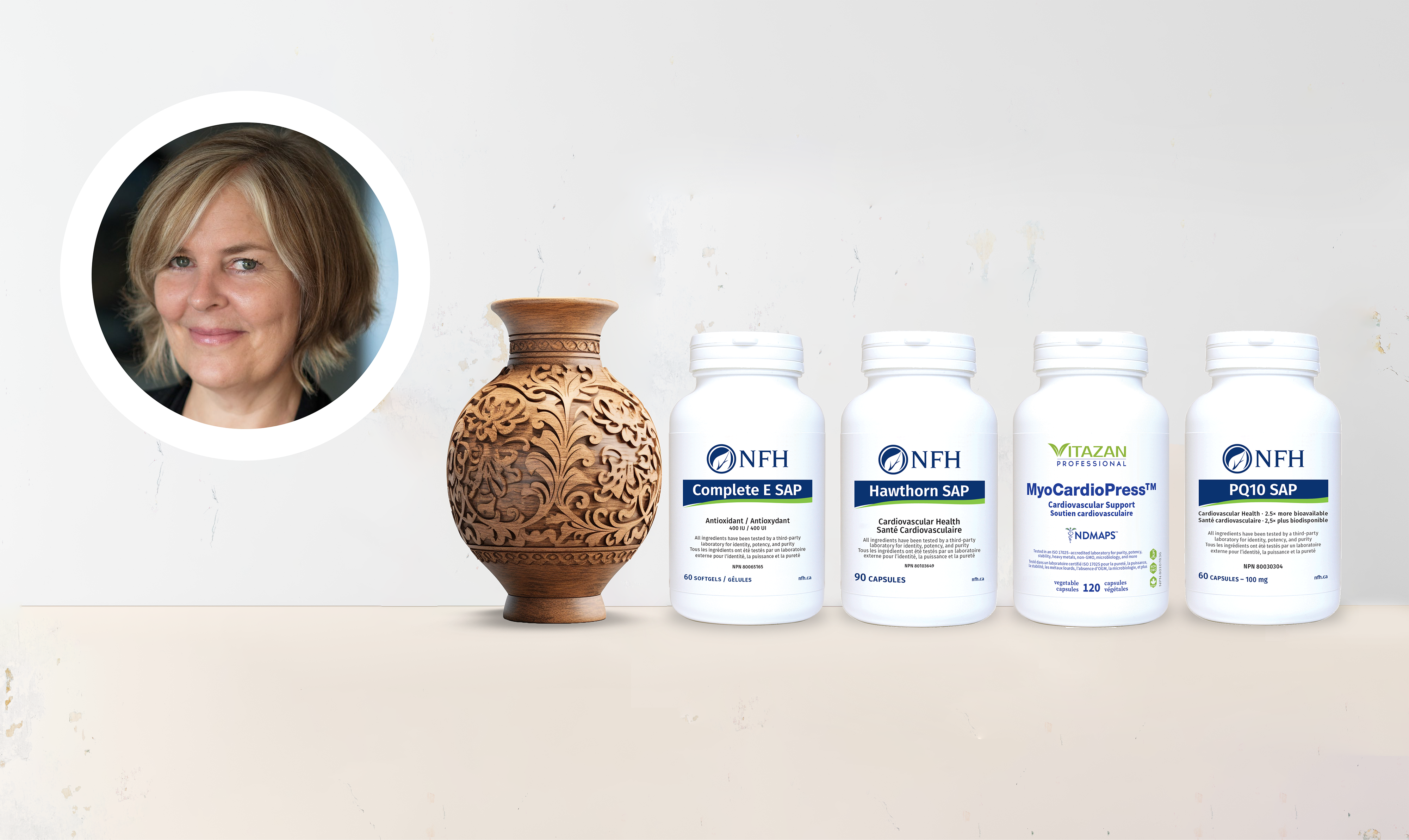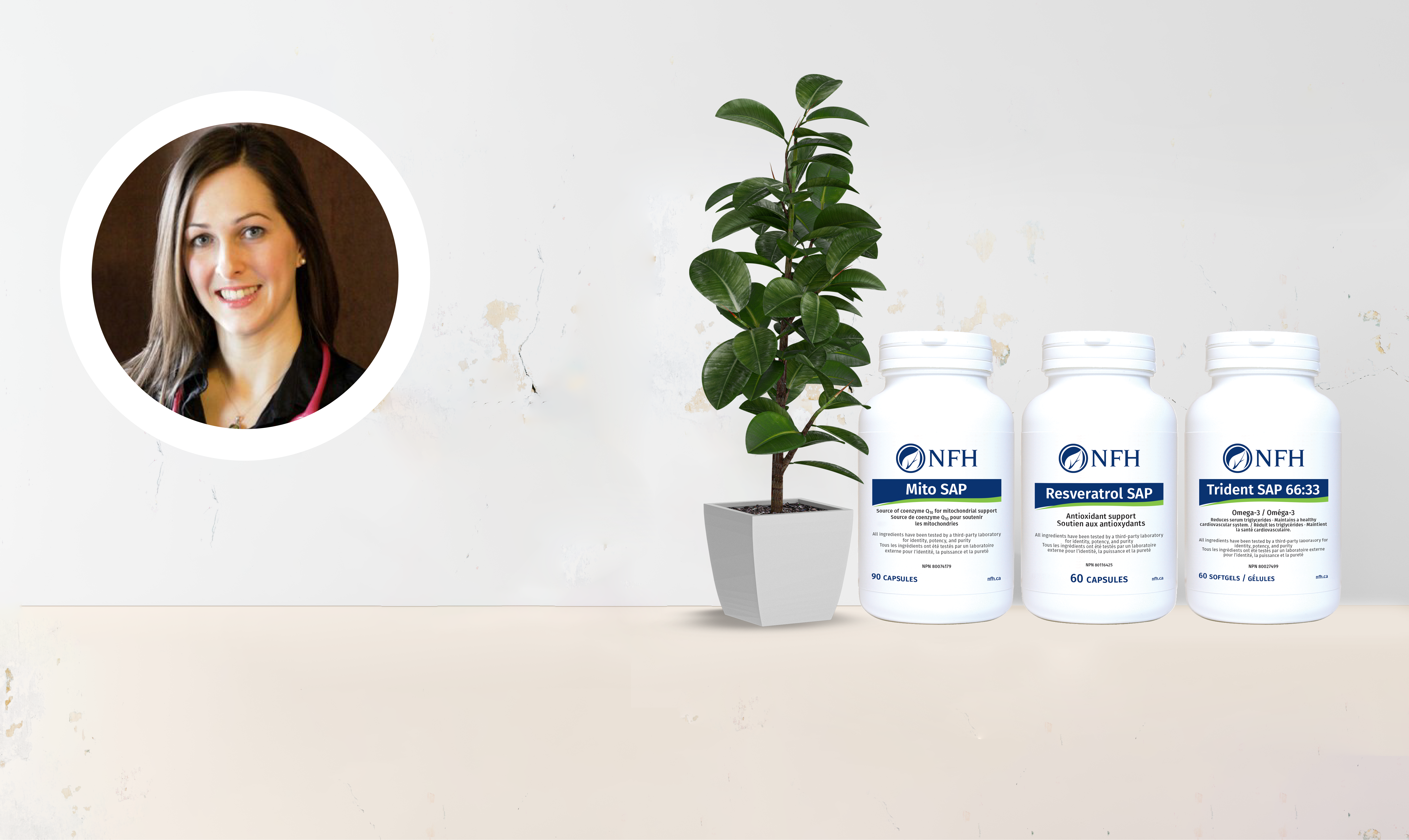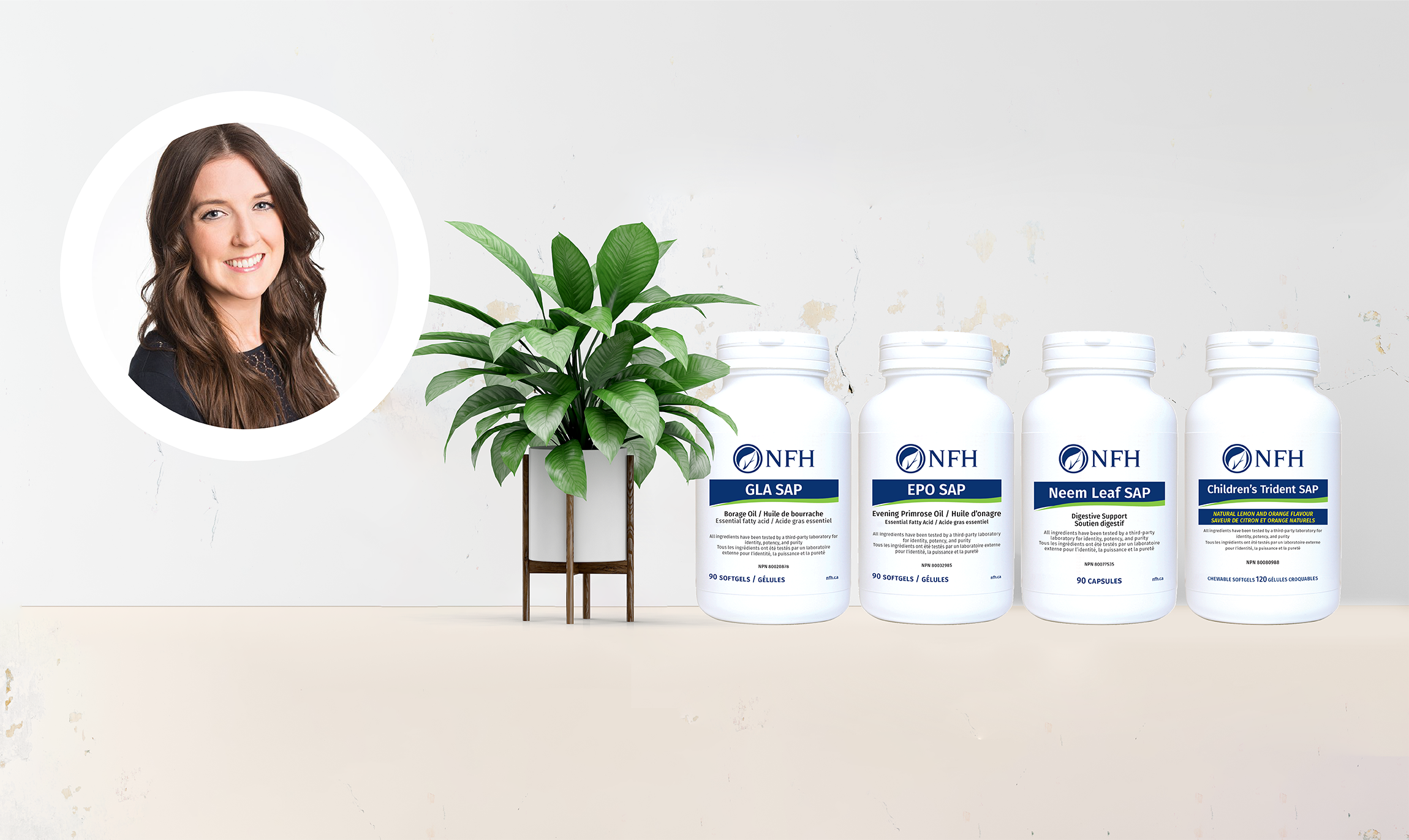
Product-Focused Webinar | Focus on Cardiovascular Health by Dr Barbara Weiss, ND
Join Dr Barbara Weiss, ND, for a 30-minute product-focused presentation on Cardiovascular Health. She will share clinical insights along with key products in the NFH line-up focused on cardiovascular health. Dr Weiss, ND, is in her 18th year of practice in Port Hope, Ontario, as well as being the South-Eastern Ontario and Saskatchewan territory manager for NFH. Her areas of focus in clinic include metabolic health, digestive health, and women’s health.







